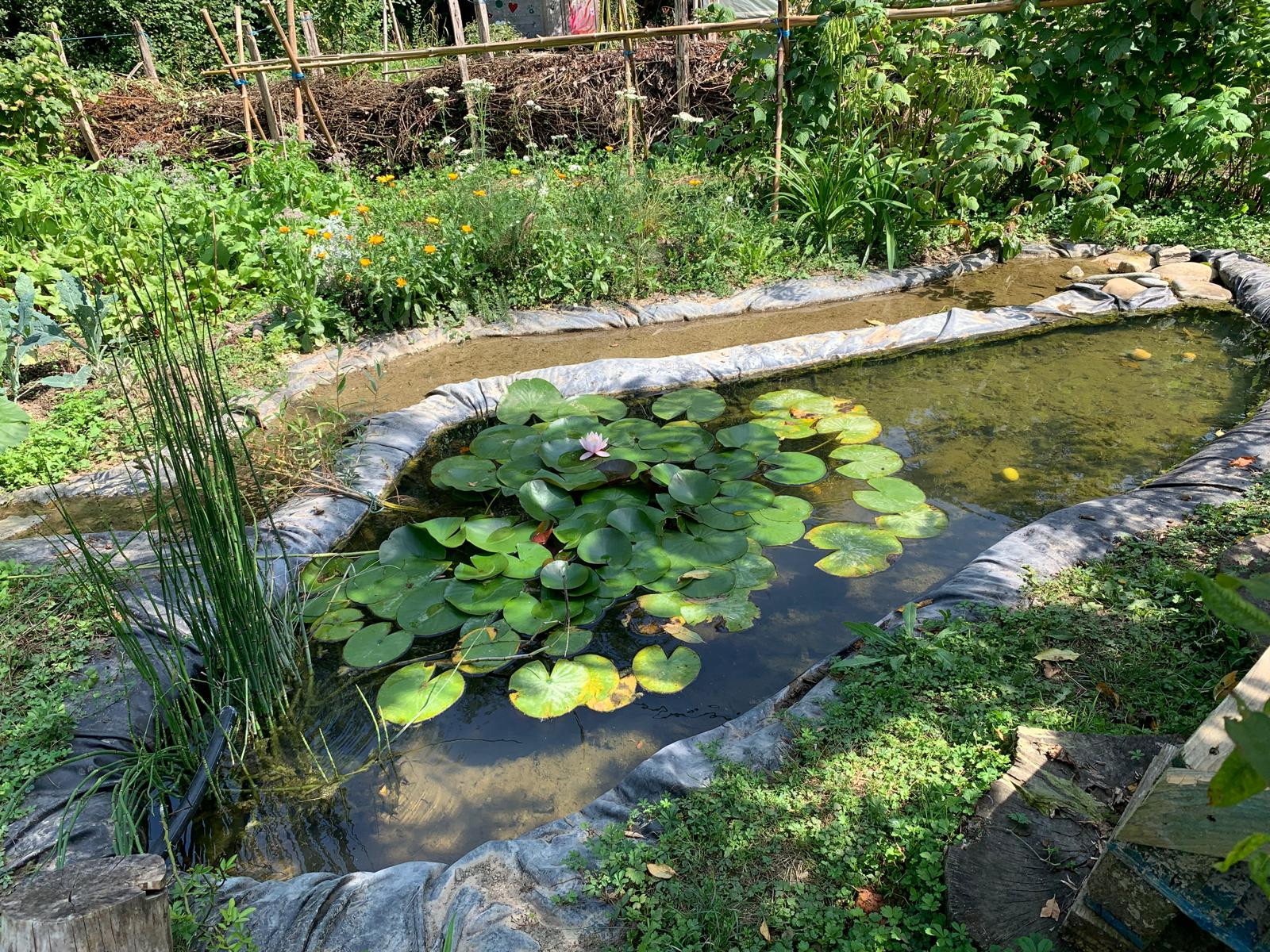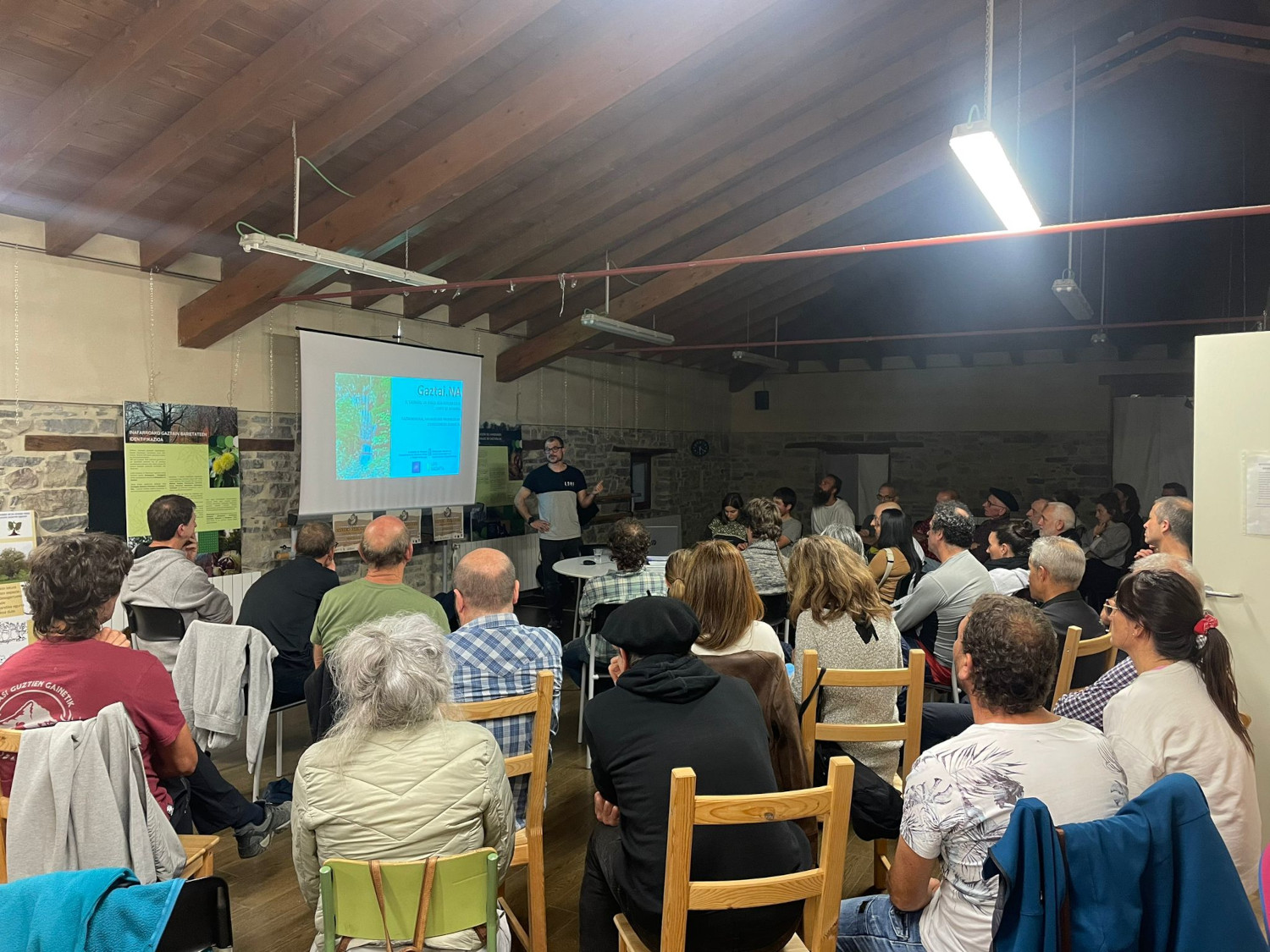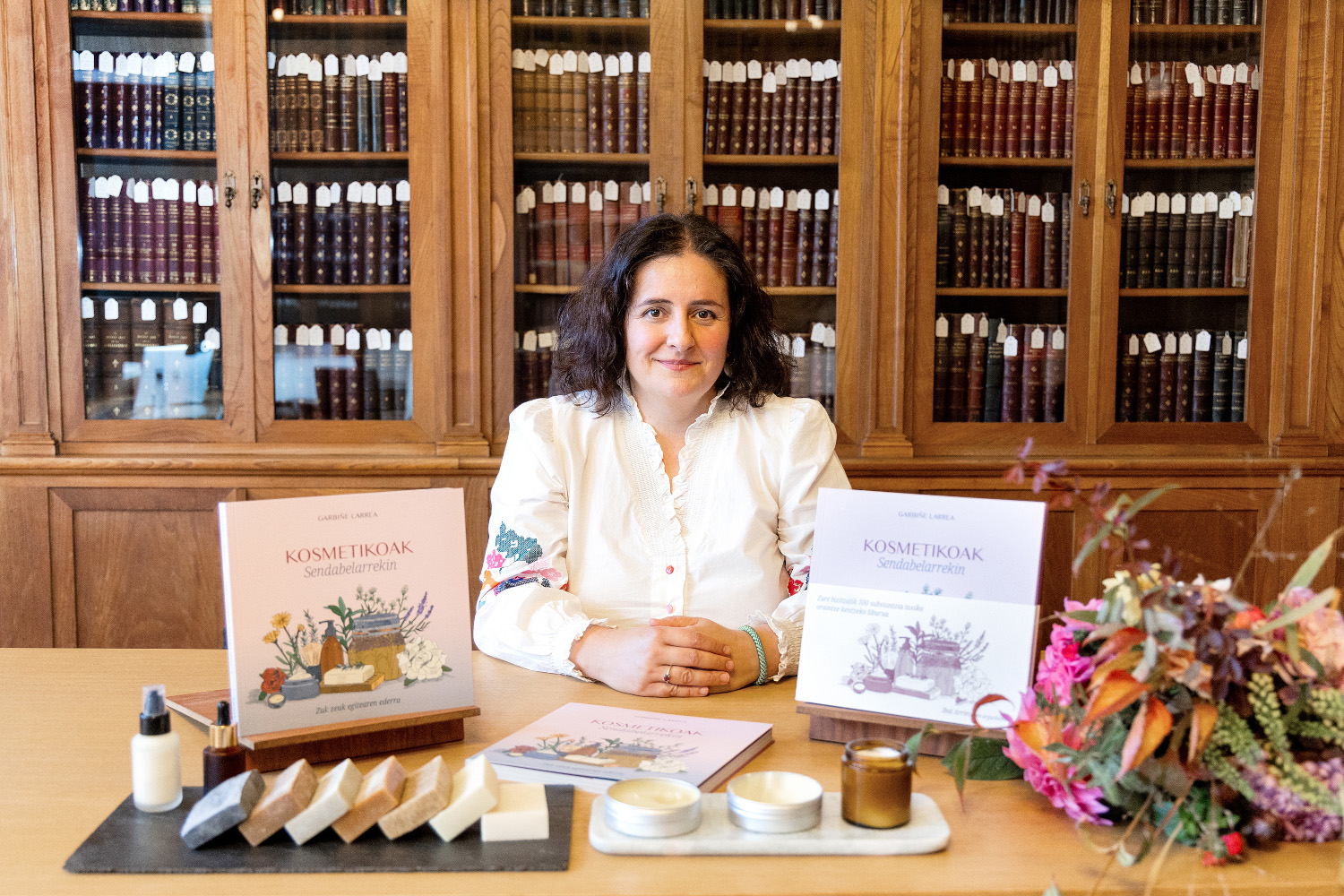Green breathing area of Tafalla surrounded by large infrastructures
- “Our municipality is crossed by a wide variety of infrastructures: motorways, gas pipelines, TAV, high-voltage lines, variants… to which must be added the industrial intensive agricultural lands that reach the urban center”. This is how Mauricio Olite Ariz, president of the Berdesia association, describes the situation of Tafalla. Seeing that they lived in an unhealthy and landscaped harsh environment, a group of citizens felt the need to do something in 2016 and decided to launch the Berdesia project. The objective is, at least within the limits of these infrastructures that function as barriers, to build a "green protection of high biodiversity". This area is called a perimeter forest.

The Berdesia project aims to reach an area of 400 hectares. Among them, most are communal lands, although there are also private ones. “Within the area we want to make a mosaic of traditional forests and plantations, also driving organic production,” says Olite. They want the green zone to be diversified, that in addition to the forest, the small orchards have their place. “Today, almost all agricultural land is occupied by cereals, and our intention is to gradually diversify it and promote traditional forms of cultivation and production: we want nuts, cherries, etc. they have their place,” he added.
Five years ago he founded a nursery in abandoned municipal facilities for the cultivation of plants for the perimeter forest. “We went out in auzolan to pick up bellotas and other seeds from time to time, and in the seminary we volunteers grow plants and then plant them.” The art and quejigo, the base of the native forest, stand out, but almonds, maples and other species have also been used, totaling 18. At the moment, the green area has 14 hectares spread over small plots, where 12,058 trees have been planted during 28 days of auzolan. “Citizen participation is very important in this project. We are collaborating with schools and with all local associations and groups: retired clubs, young people, mountain groups, feminists, merchant groups… all have participated in the plantations,” he says.
Looking to the future, but starting today
Tafalla's has gone from a small project to a complete strategy in the last two years. The Association is part of the working group "Berdesia Strategy" in collaboration with the City Council and the Government of Navarra. Future actions, projects and objectives have been defined within the framework of this strategy and economic and technical support has been provided. “Although our project is utopian and ambitious, we did not intend to confine ourselves to earning land in the future, our idea is to do what is possible since today: in collaboration with the city council and the landlords, making plantations as the land is transferred to us,” he concludes.
Gipuzkoako hamaika txokotatik gerturatutako hamarka lagun elkartu ziren otsailaren 23an Amillubiko lehen auzo(p)lanera. Biolur elkarteak bultzatutako proiektu kolektiboa da Amillubi, agroekologian sakontzeko eta Gipuzkoako etorkizuneko elikadura erronkei heltzeko asmoz Zestoako... [+]
Emakume bakoitzaren errelatotik abiatuta, lurrari eta elikadurari buruzko jakituria kolektibizatu eta sukaldeko iruditegia irauli nahi ditu Ziminttere proiektuak, mahai baten bueltan, sukaldean bertan eta elikagaiak eskutan darabiltzaten bitartean.






















